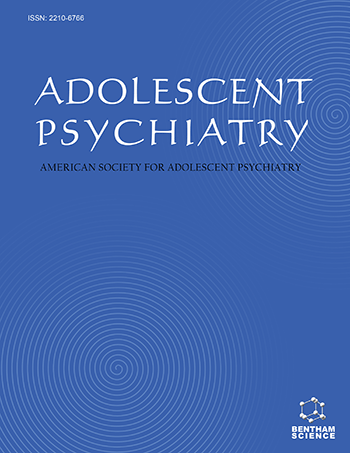Abstract
Background: Transitional Age Youth (TAY), the period between 15-25 years old, is now recognized as a unique developmental stage and a highly vulnerable time period for the onset of Serious Mental Illness (SMI).
Objective: The study aimed to inform readers about TAY with SMI to improve recognition of their developmental needs and improve patient care.
Methods: The authors describe their work with TAY experiencing SMI on inpatient psychiatric units by citing case examples that illustrate individual treatment issues, the level of family involvement in care, and social/systems based practice.
Results: TAY patients with SMI are more likely to adhere to ongoing psychiatric care when their developmental needs are addressed while in an acute inpatient setting.
Conclusion: Focusing on mental health needs of TAY while applying a developmental perspective can improve patient care and compliance to treatment.
Keywords: Transitional Age Youth (TAY), Serious Mental Illness (SMI), developmental perspective, biopsychosocial formulation, treatment issues, clinical case.
Adolescent Psychiatry
Title:Transitional Age Youth with Serious Mental Illness: High Acuity Patients Requiring Developmentally Informed Care in the Inpatient Hospital Setting
Volume: 8 Issue: 3
Author(s): Timothy Van Deusen*, Cynthia Wilson, Hyun Jung Kim, Zheala Qayyum, Hun Millard and Susan Parke
Affiliation:
- Department of Psychiatry, Yale School of Medicine, West Haven Mental Health Clinic, 270 Center St., West Haven, CT,United States
Keywords: Transitional Age Youth (TAY), Serious Mental Illness (SMI), developmental perspective, biopsychosocial formulation, treatment issues, clinical case.
Abstract: Background: Transitional Age Youth (TAY), the period between 15-25 years old, is now recognized as a unique developmental stage and a highly vulnerable time period for the onset of Serious Mental Illness (SMI).
Objective: The study aimed to inform readers about TAY with SMI to improve recognition of their developmental needs and improve patient care.
Methods: The authors describe their work with TAY experiencing SMI on inpatient psychiatric units by citing case examples that illustrate individual treatment issues, the level of family involvement in care, and social/systems based practice.
Results: TAY patients with SMI are more likely to adhere to ongoing psychiatric care when their developmental needs are addressed while in an acute inpatient setting.
Conclusion: Focusing on mental health needs of TAY while applying a developmental perspective can improve patient care and compliance to treatment.
Export Options
About this article
Cite this article as:
Van Deusen Timothy*, Wilson Cynthia, Kim Jung Hyun, Qayyum Zheala, Millard Hun and Parke Susan, Transitional Age Youth with Serious Mental Illness: High Acuity Patients Requiring Developmentally Informed Care in the Inpatient Hospital Setting, Adolescent Psychiatry 2018; 8 (3) . https://dx.doi.org/10.2174/2210676608666180820153318
| DOI https://dx.doi.org/10.2174/2210676608666180820153318 |
Print ISSN 2210-6766 |
| Publisher Name Bentham Science Publisher |
Online ISSN 2210-6774 |
 43
43
- Author Guidelines
- Graphical Abstracts
- Fabricating and Stating False Information
- Research Misconduct
- Post Publication Discussions and Corrections
- Publishing Ethics and Rectitude
- Increase Visibility of Your Article
- Archiving Policies
- Peer Review Workflow
- Order Your Article Before Print
- Promote Your Article
- Manuscript Transfer Facility
- Editorial Policies
- Allegations from Whistleblowers
Related Articles
-
In the First Person: A Window into the Experience of Early Psychosis and Recovery
Adolescent Psychiatry Is Knowledge Enough? The Relationship Between Mental Health Knowledge and Stigmatising Attitudes Among Australian Adolescents
Adolescent Psychiatry Difficulty with Uncertainty: How It Presents in Eating Disorders and What We Can Do About it
Adolescent Psychiatry Mother-Daughter Reunification in Adolescence: Another Trauma, Another Chance
Adolescent Psychiatry Use of Mental Health Services By Youths Who Have Sexually Offended
Adolescent Psychiatry Effects of Prefrontal 40 Hz-Centered EEG Band Neurofeedback on Emotional State and Cognitive Functions in Adolescents
Adolescent Psychiatry New Pathways of Intervention for Adolescents at Clinical High Risk of Psychosis: Improving Meta-representation Skills and Strengthening Identity with Video-Confrontation Techniques
Adolescent Psychiatry Substance Use in Adolescents Presenting to the Emergency Department
Adolescent Psychiatry Albert Ellis Rational-Emotive Behavior Therapy
Adolescent Psychiatry Strategies for Autism Diagnosis and Care in Resource Deprived Settings in Africa: An Overview
Adolescent Psychiatry SUBJECT INDEX
Adolescent Psychiatry Psychopharmacological Interventions for Adolescents with Eating Disorders
Adolescent Psychiatry Preventing Child and Adolescent Mental Illness - We Got This
Adolescent Psychiatry History of Psychiatry in the Dominican Republic
Adolescent Psychiatry Child Mental Health in the Philippines
Adolescent Psychiatry Marijuana and Adolescents: Treatment Strategies for Clinicians
Adolescent Psychiatry Germans Reporting About their Childhood in the WWII and the Nazi Era
Adolescent Psychiatry From 9/11 To 2011: A Brief Overview from a Child and Adolescent Psychiatry Perspective
Adolescent Psychiatry Bipolar Affective Disorder in Young People: A Review
Adolescent Psychiatry Cannabis and Cognitive Systems in Adolescents
Adolescent Psychiatry

























